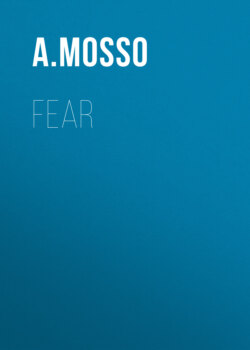Читать книгу Fear - A. Mosso - Страница 5
На сайте Литреса книга снята с продажи.
II
ОглавлениеTable of Contents
He who one day will write a book on the physiology of the orator will render a great service to society—to us who have to pay so dearly for 'that extravagant idolatry of ourselves’ which incites us to speak in public. But such a work must be a complete treatise, a mirror in which each might see himself and learn to what ridicule he exposes himself, what punishment awaits him, when he mounts the rostrum uncalled for and untried. Each must see himself with pallid cheeks, perturbed, distorted countenance, suffering from that unhealthy excitement which, like a storm of emotion, breaks out in trembling. Before entering the lists let each feel the oppression on the chest, the cough, the compression of the bladder, the loss of appetite, the unquenchable thirst, the dizziness which will blind him; and lastly, let each endure in advance all the innumerable gradations of pitying sympathy awakened in the audience by his own timidity.
We can better understand the influence of the emotions on the organism if we consider the long novitiate, the unwearying efforts and the countless trials of even the greatest orators before they attained to self-control, and to the simple end of preserving before the public the same intonation, gestures, and persuasive force which are natural to them when in the company of their friends or the retirement of the family circle.
I have seen men of brilliant intelligence standing rigid, their arms hanging at their sides like recruits, their features distorted and their eyes fixed on the ground, stammering and grinding out their speech, so as to move one to pity. Others, known to their intimates as jovial anecdotists, make one turn away one’s eyes in compassion when, on important occasions, they stop short in the middle of a sentence, gasp, repeat the same word four or five times, struggling for utterance, and at last stand still open-mouthed, clutching the table or their watch-chain, as though in search of an anchor of salvation. Others, again, go to a banquet and succeed in damping all gaiety. At the very beginning it is evident that food is swallowed with difficulty, their speech lies heavy on their heart, they are nervous and tortured by the fear that their memory may leave them in the lurch. One pities them when at last they rise pale and trembling, then speak confusedly, jerkily, swaying to and fro with wide-open eyes, as though stupefied with agitation.
A former master of mine, once professor of sacred rhetoric at the Athenæum of Turin, could, at the beginning of a nervous affection, only speak sitting, owing to the excessive trembling of his legs; and at last he was obliged to renounce the triumphs which his masterly and enviable gift of eloquence procured him, as he was unable, after having concluded his speech, either to rise, to descend from the cathedra, or to walk.
But why does the simple fact that we are standing before the public produce such disquietude within us? Why is it followed by such a far-reaching disturbance of the organic functions? We say it is the nerves, the brain, anxiety, the physical nature of man which we cannot control. But there is confusion also in our ideas. What is this much-praised force of will, this power of the soul which makes us so bold when alone and yet so cowardly before the eyes of a few people?
I confess the problem is difficult, and I believe the easiest way to a partial solution is to analyse without prejudice what we all know about cerebral activity, and to see what physiologists have discovered in studying the emotions and the physical phenomena of thought.
